THERE are three things Siva Shanker, the new president of the Malaysian Institute of Estate Agents (MIEA), wants to accomplish in the next two years — to continue with efforts to increase MIEA's membership, bring more professionalism to the industry and increase the exposure of real estate agencies to the general public.
MIEA, established 37 years ago, represents registered estate agents and negotiators in the country and currently has a membership of about 1,000 agents. Siva, who is also the CEO of PPC International Sdn Bhd, started his two-year tenure on April 27. Siva and his committee are facing many challenges, from flushing out unscrupulous illegal agents who tarnish the reputation of registered players to addressing concerns of a slower secondary market.
Professionalism and membership drive
If Siva had his way, MIEA would be the main, if not the only, organisation representing real estate agents and negotiators in Malaysia. To have only 1,000 members out of 1,700 agents and 10,000 negotiators in Malaysia is just not satisfactory, says Siva, who aims to increase the number of members to 3,000 in two years.
MIEA councillor Judith Ng is tasked with the membership drive. She says the institute is underrepresented because many agents and negotiators are not aware that MIEA can help them in their profession. Besides being part of a professional body that represents their interest, members also have an opportunity to improve themselves through courses organised by the institute, says Ng.
She adds that MIEA is running a promotion. For every application, new members get a cash voucher that offers a rebate of between RM80 and RM100 for courses. According to Siva, this move has worked well, with MIEA managing to recruit about 220 new members.
Siva is well aware that the industry suffers from a lack of professionalism. While most agents and negotiators are professionals, those that aren't can create a negative perception of the industry. The key to solving this problem, he believes, is education.
MIEA, in collaboration with Open University Malaysia, introduced the Professional Diploma in Estate Agency in August last year. The course was launched in Kuching, Johor Baru and Kota Kinabalu. The course allows students to be tutored for exams conducted by The Board of Valuers, Appraisers and Estate Agents (BVAEA).
Upon passing the exam, students are given the authority to practise as a registered real estate agent and own a real estate agency. He noticed that there have been a number of students flying into Kuala Lumpur on weekends to attend courses conducted by BVAEA, and then flying home on Sunday on budget airlines.
This has prompted MIEA to conduct classes in smaller towns to make it easier for those interested in a career in real estate. The response to the course has been positive. About 40 students have signed up for the courses in JB while Kuching and Kota Kinabalu have seen an intake of 20 students each.
Buoyed by the demand for continuous education, MIEA is now in the midst of setting up a new arm in training and education, headed by councillor Judy Chen. "The response we had was really good and we still have students enquiring and applying for the next intake," says Chen, adding that MIEA hopes to set up classes in Kuala Lumpur soon.
The aim, she says, is to bring more professionalism to the industry. "We want to equip negotiators and those interested in a career in real estate with the knowledge and skills so that they can become registered agents. We hope that one day, they can start their own agencies."
MIEA also hopes to increase the frequency and attendance at its real estate seminars and negotiators course. While education can help elevate the professionalism of the industry, it doesn't address the problem of unregistered agents who don't play by the rules.
"The unregistered agents are not just the ones who tack illegal advertisements all over the city but include some who actually have offices. There have been cases of buyers being cheated of their deposits. These bad apples can cause a huge misrepresentation of the industry," Siva laments. He advises the victims to come forward and report such cases.
Holding property events
MIEA held its first Malaysian Secondary Property Exhibition in April this year. Some 22 agencies took part, exhibiting a total of RM1.8 billion worth of properties in the Klang Valley and Penang.
The three-day event drew a crowd of 10,000. The results exceeded MIEA's expectations. The idea of having a secondary property exhibition was mooted about five to six years ago. "There is a need for us, as an institution, to come together and exhibit listings to the public," says Erick Kho, deputy president of MIEA.
"There are a lot of property exhibitions focused on primary markets. However, this is the first time that a secondary property exhibition has been held in the country," adds Siva.
"About three to four homes were sold on the spot during the three-day event and another 108 units with a value of RM50 million were negotiated in the three weeks following the event," says Kho.
Due to the good response, MIEA hopes to hold the event in other states in the country, such as Penang and Johor. They are also in talks to organise the event in Singapore.
MIEA also organises two other major events yearly — the Malaysian Annual Real Estate Convention (MAREC) and the MIEA National Real Estate Awards, which are presented during its annual dinner.
MAREC has been held in March every year for the past 32 years. The aim of the event is to share interesting, relevant and informative topics reflecting the changing trends and new challenges in the industry.
As for the awards, they are given out to outstanding real estate agents and agencies in various categories that have, in one way or another, contributed to the industry. Winners are selected by a panel of three judges from various professional capacities in the industry. The awards are open to all registered estate agents and registered estate agencies, including non-members of MIEA. Siva plans to increase the number of awards from the current 22 and, more importantly, elevate them to the national level by including agents and agencies from the rest of the country.
The market ahead
According to Siva, the main challenge faced by agents in 2012 was buyer sentiments. "Many were of the view that prices were too high. The number of properties on the market with an asking price close to the market value was very low," says Siva.
Despite the lower transaction volume, the transacted value increased by 10% in 2012. He notes that the secondary market slowed down in the first quarter of this year as consumers adopted a wait-and-see approach due to the uncertain outcome of the general election.
Moving forward, Siva is bullish about the secondary market. "As prices find a healthy level, more consumers are able to accept the prices and will be prepared to buy. Transactions will pick up."
Siva believes that the residential market will remain the main driver and that properties with good concepts and locations will continue to do well. He expects terraced and semi-detached houses to remain the best-selling products.
"Growth will follow the infrastructure. Prices will continue to increase if stock remains tight."
The recovery of the condominium market
The condominium market, particularly in locations favoured by expatriates, was hit the hardest by the global financial crisis as companies trimmed the number of staff and housing allowances were slashed, says Siva.
"Subsequently, many condo units began to empty out as tenants left the country or moved to cheaper accommodation. This resulted in an average drop of 30% in asking rents for condos in the Klang Valley," shares Siva.
However, several government initiatives such as the Economic Transformation Programme and the efforts by TalentCorp have begun to bear fruit.
The high-end condominium market is starting to enjoy high occupancy levels. Siva predicts this segment of the market will continue to grow in the coming quarters. "Rentals are expected to slowly improve as more expatriates relocate back [into the country]."
Siva and Kho notice a shifting preference from landed residences to condos, especially from the younger group, for security and economic reasons. "Some 20 years ago, people bought condos as investments to be rented out to expats. It has only been in the past 10 years that people are actually choosing to stay in condos," says Kho.
"The condominium market is expected to continue to recover, supported by a convergence of factors. This includes the young demographic that will continue to form new households, high savings rates and low unemployment rates in our country," says Siva.
However, he is not entirely confident about the sustainability of small properties with commercial titles such as SoHo (small office/home office), SoVo (small office/versatile office) and SoFo (small office/flexible office), citing oversupply and overspeculation as his main concerns. "Then again, this is my personal opinion. Trends do change. I hope the market will be able to absorb these units," he says.
Improving demand for space
According to Siva, the stricter lending guidelines introduced by Bank Negara Malaysia did not impact the commercial segment of the market. Values of commercial properties have continued to escalate in popular locations.
Siva notes that there is a shortage of new supply of industrial space in Penang, resulting in higher rental rates than in the Klang Valley. The demand mainly comes from the electrical and electronics industry.
The demand for commercial and industrial space in Johor has also improved substantially over the past few years, fuelled by several factors such as better political relations with Singapore, the materialisation of several major projects in Iskandar Malaysia and the success of the Port of Tanjung Pelepas.
"Land values are on the rise in Johor and demand for industrial land and office buildings are improving. It is important to note that Johor is a huge state with plenty of land,” says Siva. As for shop offices, he foresees more businesses renting rather than buying as rising prices make it difficult for the average businessman to buy a unit.
A growing sophisticated market
Consumers today are more learned, sophisticated and want to get their money's worth, which is something that developers are aware of. "Consumers now don't just want a roof over their heads. They want beautifully-designed homes that offer them a lifestyle," says Siva.
He adds that this trend has led to the growth of "flippers" in the secondary market who reap profits by giving old houses a second lease of life. "After tastefully renovating the home, the person sells it at a higher price, earning a clean RM200,000 to RM300,000 profit within a year," shares Siva.
Kho says another emerging trend is branded residences. "A good example would be the Four Seasons Place in KLCC, which is said to be going for about RM3,000 psf."
Four Seasons Place is a collaboration between Venus Assets Sdn Bhd and Four Seasons Hotels and Resorts Asia Pacific Pte Ltd. Siva adds that in the past, mixed-used developments were not popular with property buyers. However, with better planning and the increasing congestion associated with city living, mixed-used developments are now welcomed by the younger generation who favour them due to their convenience.
Whatever the challenges, be it in the industry or the market, Siva is optimistic about the future. From here on, it's full steam ahead for MIEA.
This story first appeared in The Edge weekly edition of May 27-June 2, 2013.
TOP PICKS BY EDGEPROP

Mayfair Residences @ Pavilion Embassy
Keramat, Kuala Lumpur

Semenyih Lake Country Club
Semenyih, Selangor

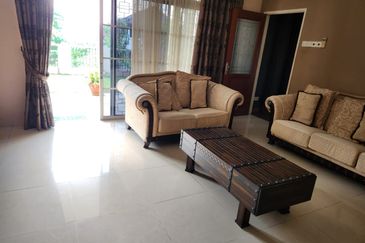
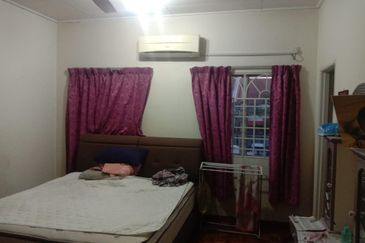
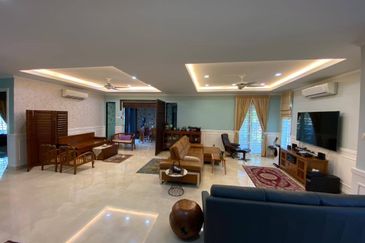
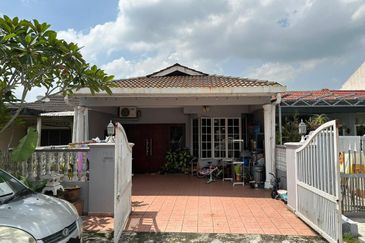
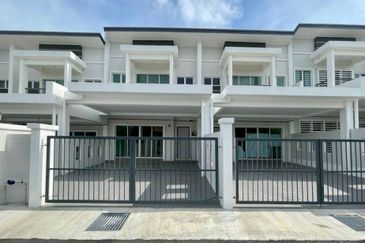
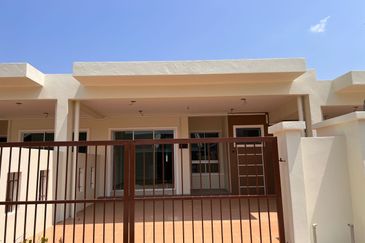
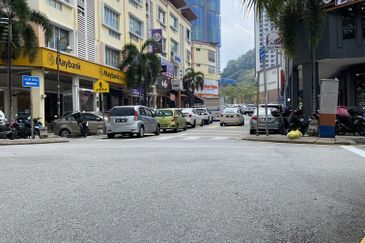
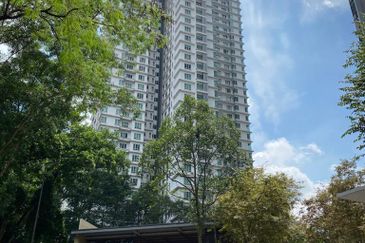
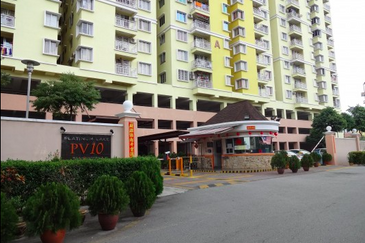
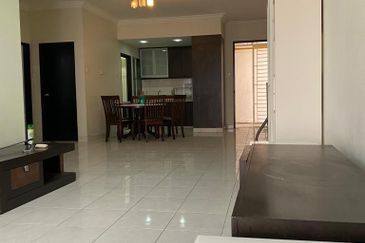
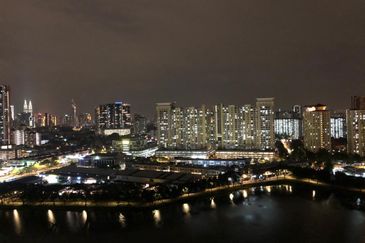
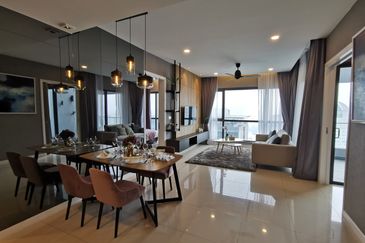
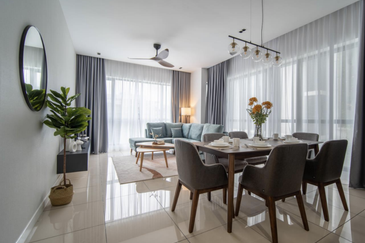
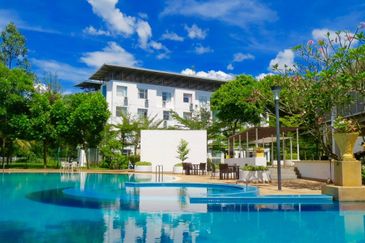
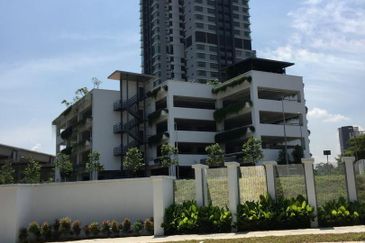
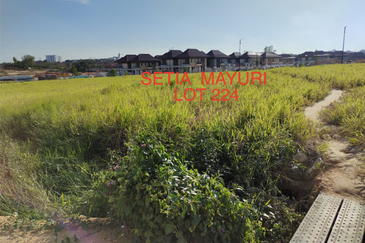
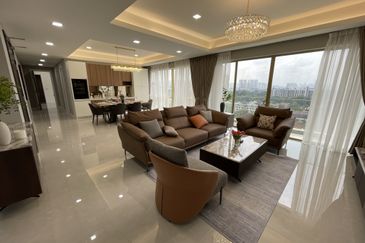
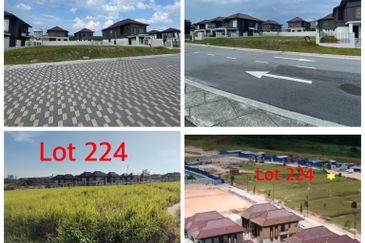
hero.jpg?GPem8xdIFjEDnmfAHjnS.4wbzvW8BrWw)



